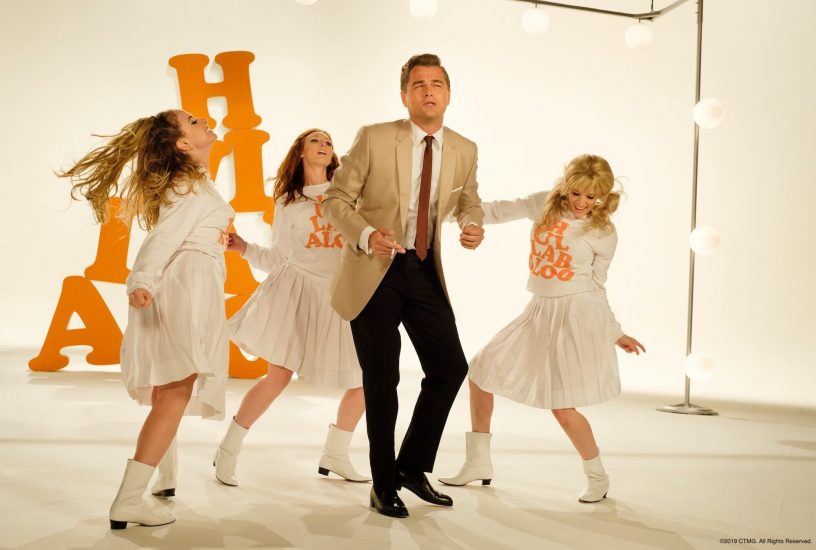Quentin Tarantino loves Hollywood—this much is obvious. He loves the movies; loves the people who make them. So do many of us, even if that number is dwindling these days. The movies don’t give back the way they used to.
This one does.
For Tarantino, Hollywood is real. (He grew up there, after all.) Set in 1969 (QT was six) this is the rare Los Angeles movie with a sense of geography and connection. Among its numerous incidental pleasures, one is the joy of driving too fast in an open convertible down winding canyon roads or on (unclogged) freeways, neon signs and movie theatres on every corner, spotting famous (even semi-famous) people—on the screen, on billboards, on the street… Seeing and being seen, looking at yourself; making believe.
Leonardo DiCaprio is Rick Dalton, a TV cowboy dimly aware his best days are behind him. It’s an endearing and affectionate comic sendup of actorly insecurity, ego, and the labour of performance. But the movie’s real star is Rick’s personal stunt man stand-in/driver/assistant and best friend, Cliff (Brad Pitt), who effortlessly embodies the easy masculine authority Rick can only simulate on the small screen. Cliff is the movie’s ambiguous centre—and its trapdoor.
Tarantino gives us people in a specific time and place, and not a lot of plot. For long stretches he also withholds “scenes” in the baroque, knowing idiom we have come to expect from him—even the dialogue is muted—except in Rick’s TV work, the scenes-within-the-scenes. If you don’t dig late ’60s ephemera as much as Quentin (fun trivia: he was named after a character in the TV show Gunsmoke), the guileless gusto of bubblegum pop, you may be a little bored. But of course he knows what he is doing. The movie’s tension is spring-loaded on Rick’s next-door neighbour, Sharon Tate (Margot Robbie, all smiles and shimmy), and our anticipation of her fate. But for a couple of days in February, nothing much happens, just a shadow here and there, a darkening suspicion that something’s awry, that this make-believe bubble world we think we know and love is getting fit to burst wide open.
This is a fairytale of Los Angeles, a bliss out with a violent kicker, a film infatuated with cinema, a narcotic nocturne from which we are bound to wake up. Screaming.
Dive into the Arts.
